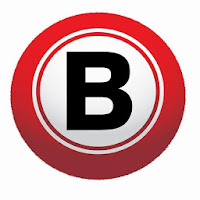If you own one of the best gaming PCs or laptops, you're likely looking for a reliable way to back up or transfer all your valuable data. While top SSDs and external hard drives are excellent for storing essential files, photos, and other content, a Network-Attached Storage (NAS) drive offers unmatched convenience and scalability. Our top pick, the Synology DiskStation DS224+, is a standout choice for its performance and ease of use.
TL;DR – These are the Best NAS Devices:

Our Top Pick
Synology DiskStation DS224+
0
See it at Amazon

UGREEN NASync DXP2800
0
See it at Amazon

Synology DiskStation DS223j
0
See it at Amazon

Asustor Lockerstor 2 AS6602T
0
See it at Amazon

Synology DiskStation DS1821+
0
See it at Amazon

QNAP TS-264-8G
0
See it at Amazon

Synology DiskStation DS923+
0
See it at Amazon

ioSafe Duo Pro
0
See it at ioSafe
NAS drives are renowned for their significant storage capacity and ability to integrate seamlessly into your home network, facilitating quick data transfers among various devices. Smartphones, tablets, desktops, and laptops can all connect to the same network simultaneously, making NAS an ideal solution for managing digital media libraries. However, NAS devices can be a significant investment, so it's crucial to choose wisely. We've selected eight top-tier options to suit a variety of needs.
Synology DiskStation DS224+
Best NAS

Our Top Pick
Synology DiskStation DS224+
0
The Synology DiskStation DS224+ is an easy-to-use, high-speed NAS with two drive bays, two Gigabit LAN ports, a powerful Intel Celeron processor, and 2GB of upgradable RAM.
See it at Amazon
Product Specifications
- Connection: Ethernet, USB 3.2
- RAID Level: SHR, JBOD, RAID 0, RAID 1
- Storage: 2 x 3.5"/2.5" bays
- Size: 9.02" x 9.13" x 6.5"
Pros
- Easy-to-use interface
- Fast quad-core processor
Cons
- No multi-gig LAN port
For those who want a hassle-free experience without complex software, the Synology DiskStation DS224+ is a highly capable yet straightforward NAS. With two drive bays, you can choose to increase storage up to 32TB or opt for a RAID 1 configuration for data redundancy. The dual Gigabit LAN ports support higher speeds through Link Aggregation or network failover, although a multi-gig LAN port would be a welcome addition for even faster connections.
Synology's versatile apps and software run on an intuitive interface, making it perfect for storing security camera footage, serving as a Plex server, or keeping your files and photos secure and accessible. Whether you're transcoding 4K media, managing files, or streaming videos, the DS224+ delivers exceptional performance thanks to its Intel Celeron J4125 2.0GHz quad-core processor and 2GB of DDR4 RAM, which is upgradable for future needs.
UGreen NASync DXP2800
Best Budget NAS

UGREEN NASync DXP2800
0
This NAS offers quality hardware, a stylish design, and a budget-friendly price, featuring dual drive bays ready to back up all your files.
See it at Amazon
Product Specifications
- Connection: Ethernet, USB, HDMI
- RAID Level: JBOD, RAID 0, RAID 1, Basic
- Storage: 2 x 2.5"/3.5" bays, 2 x M.2 PCIe NVMe slots
- Size: Not listed
Pros
- Comprehensive OS and apps
- Multi-gig ethernet
Cons
- No native Plex
The UGreen NASync DXP2800 offers a compelling package with its robust build, attractive design, and quality hardware at a midrange price. Powered by an Intel N100 quad-core processor and 8GB of RAM, it's well-equipped to handle high-quality video libraries and performs admirably in hardware transcoding.
UGreen's comprehensive OS simplifies setup and network configuration, and additional security features like two-factor authentication protect your content. Backing up files and setting up a personal cloud server is straightforward, although Plex isn't natively supported. However, it can be easily installed via Docker with excellent performance.
For storage, the dual SATA drive bays support up to 24TB each, offering ample space for media or redundancy with RAID configurations. UGreen's toolless installation system makes adding drives a breeze. Two M.2 slots accommodate NVMe SSDs up to 8TB, and a 2.5Gb ethernet port ensures speedy file transfers. Additional connectivity options include HDMI, USB-C, and USB-A for broad device compatibility.
Synology DiskStation DS223j
Most Affordable NAS

Synology DiskStation DS223j
0
This ultra-affordable and user-friendly NAS is ideal for beginners looking to start their NAS journey.
See it at Amazon
Product Specifications
- Connection: Ethernet, USB
- RAID Level: Basic, JBOD, RAID 0, RAID 1, SHR
- Storage: 2 x 3.5" bays
- Size: 6.5" x 3.94" x 8.9"
Pros
- Reliable hardware
- Easy to use
Cons
- Lacks multi-gig ethernet port
Not all NAS options are expensive, and the Synology DiskStation DS223j is a perfect entry-level choice for those with simpler storage needs. It runs on Synology's renowned DiskStation Manager (DSM) OS, which provides a wide array of applications for seamless file storage and access across multiple devices.
The build quality of the DS223j is primarily plastic and requires a screwdriver for drive installation, but this shouldn't be a frequent necessity. With a maximum capacity of 32TB and no M.2 slots for caching or additional storage, it's a straightforward, reliable, and budget-friendly NAS.
Asustor Lockerstor 2 AS6602T
Best NAS for Power Users and Professionals

Asustor Lockerstor 2 AS6602T
0
This NAS, equipped with an Intel Celeron quad-core processor, 4GB of upgradable RAM, and dual drive bays supporting 2.5-inch or 3.5-inch SATA drives, is perfect for power users and professionals.
See it at Amazon
Product Specifications
- Connection: Ethernet, USB 3.0, HDMI
- RAID Level: JBOD, RAID 0, RAID 1
- Storage: 2 x 3.5"/2.5" bay, 2 x M.2 PCIe NVMe slots
- Size: 9.06" x 4.25" x 6.44"
Pros
- Dual M.2 PCIe NVMe slots for additional storage
- Supports 10-bit 4K hardware decoding
Cons
- Drive installation is more involved
The Asustor Lockerstor AS6602T is ideal for those who demand high performance from their NAS. With an Intel Celeron quad-core processor and 4GB of RAM (upgradable to 8GB), it's designed for heavy use. The two drive bays support either 2.5-inch or 3.5-inch SATA drives, and two M.2 PCIe NVMe slots allow for even faster storage options.
Network connectivity is enhanced with dual 2.5Gb ethernet ports, which can be combined for up to 5Gb connectivity. This NAS is versatile enough for speedy backups, virtualization, or as a powerful media center, and it features an HDMI 2.0 port for a 4K HDR experience.
Synology DiskStation DS1821+
Best Multi-Bay NAS

Synology DiskStation DS1821+
0
For those requiring extensive storage, the DS1821+ offers eight drive bays for a total capacity of 128TB and includes M.2 2280 NVMe slots.
See it at Amazon
Product Specifications
- Connection: Ethernet, USB 3.2
- RAID Level: JBOD, RAID 0, RAID 1, RAID 5, RAID 6, RAID 10, Synology Hybrid RAID (SHR)
- Storage: 8 x 3.5"/2.5" bay, 2 x M.2 PCIe NVMe slots
- Size: 18.2" x 14.4" x 12.5"
Pros
- Wild 128TB capacity
- Hot-swappable drives
Cons
- Can get noisy
If you have vast amounts of data to store and access across multiple devices, the Synology DiskStation DS1821+ is a robust solution. Though priced over $1,000, it offers future-proof expandability with eight drive bays supporting 3.5-inch and 2.5-inch drives or SSDs.
The DS1821+ provides a 128TB capacity with hot-swappable drives and can be expanded to 18 drive bays. M.2 2280 NVMe slots enable high-speed caching, and the system is powered by a quad-core AMD Ryzen CPU and 4GB of DDR4 ECC memory, expandable to 32GB.
QNAP TS-264-8G
Best NAS for Media Streaming

QNAP TS-264-8G
0
This NAS offers a central location for your media library with dual 2.5Gb Ethernet ports, a 4K HDMI output, dual drive bays, and multiple USB 3.2 Gen 2 ports.
See it at Amazon
Product Specifications
- Connection: Ethernet, USB 3.2, HDMI
- RAID Level: RAID 0, RAID 1, RAID 5, RAID 6, RAID 10, JBOD
- Storage: 2 x 3.5"/2.5" bay, 2 x M.2 PCIe slots
- Size: 8.1" x 6.6" x 4.1"
Pros
- Compact design
- Impressive hardware
Cons
- Software is harder to master
The QNAP TS-264-8G is designed for media streaming, providing a central location for your media library. With dual 2.5Gb ethernet ports, it ensures sufficient throughput even with multiple users accessing large files. It also features a 4K-capable HDMI output for direct connection to your TV.
The TS-264-8G includes two 3.5-inch drive bays for extensive storage, along with two PCIe Gen 3 slots for fast caching or enhanced network speeds. An Intel Celeron N5105/N5095 quad-core processor and 8GB of DDR4 memory ensure smooth performance, including 4K video streaming with hardware transcoding.
Synology DiskStation DS923+
Best Network Attached Storage for RAID Configurations

Synology DiskStation DS923+
0
This NAS offers four drive bays for ample storage and various RAID configurations to ensure data security.
See it at Amazon
Product Specifications
- Connection: Ethernet, USB 3.2, eSATA
- RAID Level: RAID 0, RAID 1, RAID 5, RAID 6, RAID 10, Synology Hybrid RAID (SHR), Basic, JBOD
- Storage: 4 x 3.5"/2.5" bay, 2 x M.2 PCIe slots
- Size: 6.5" x 7.8" x 8.7"
Pros
- Offers various RAID levels
- Expandable storage and RAM
Cons
- No multi-gig LAN port
A NAS's primary advantage is data backup, and using RAID configurations can enhance security. The Synology DiskStation DS923+ excels in this regard with four drive bays, allowing for extensive storage and redundancy. It supports a range of RAID types, including RAID 0, RAID 1, RAID 5, RAID 6, RAID 10, Synology Hybrid RAID (SHR), Basic, and JBOD.
The DS923+ accommodates 3.5-inch and 2.5-inch drives, with two M.2 2280 NVMe SSD slots for fast caching. It features two 1Gb ethernet ports with Link Aggregation or Failover support and an option for 10Gb connectivity. A dual-core AMD Ryzen processor and 4GB of upgradable DDR4 RAM power the system, complemented by the user-friendly DSM operating system.
ioSafe Duo Pro
Best Rugged NAS

ioSafe Duo Pro
0
While not technically a NAS, the ioSafe Duo Pro keeps your data safe from fire and water and offers RAID configurations for added protection.
See it at ioSafe
Product Specifications
- Connection: USB 3.2
- RAID Level: RAID 0, RAID 1, JBOD, SPAN
- Storage: 2 x 3.5"/2.5" bays
- Size: 11.50" x 5.91" x 9.06"
Pros
- Fireproof and water-resistant
- Offers two robust, long-lasting drive bays
Cons
- Not designed to be a NAS
The ioSafe Duo Pro is built to protect your data from physical damage, with fireproof and water-resistant capabilities. Its IP68 rating ensures protection against submersion in water up to 10 feet for 72 hours.
In addition to physical protection, the Duo Pro supports various RAID configurations and features robust, long-lasting drive bays. ioSafe also offers data recovery services. Note that this device is not a NAS by design, so to use it for network storage, you'll need to connect it to an always-on computer or directly to your router via USB.
What to Look for in NAS
NAS devices are not essential for everyone, but they can solve specific networking challenges. If you and your family or housemates share the same network, a NAS allows you to share files across all connected devices from a single unit. If backing up multiple computers individually is a hassle, a NAS provides a centralized solution.
What are you using it for?
If you need to access the same tools or files from multiple devices, a NAS is a worthwhile investment. It's not just about storage but also about accessibility.
Another common use for NAS is managing a large media library accessible from multiple devices. You can set up your NAS as a Plex server, ensuring everyone in your home can easily access movies, TV shows, and music.
Go diskless? How many bays?
Most NAS devices are sold without disk drives, requiring you to purchase them separately. Manufacturers often don't produce hard drives, so they sell NAS units without disks. If you already own compatible drives, a diskless system is less of an issue, but always check the manufacturer's recommendations for optimal performance.
The number of bays determines the NAS's potential capacity. A minimum of two bays is recommended, with multimedia systems typically requiring more.






